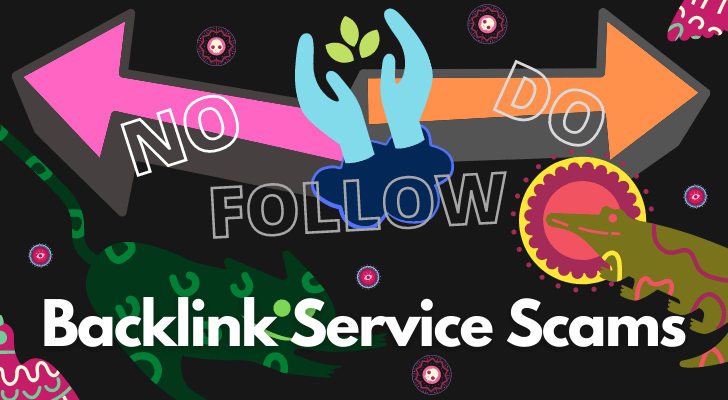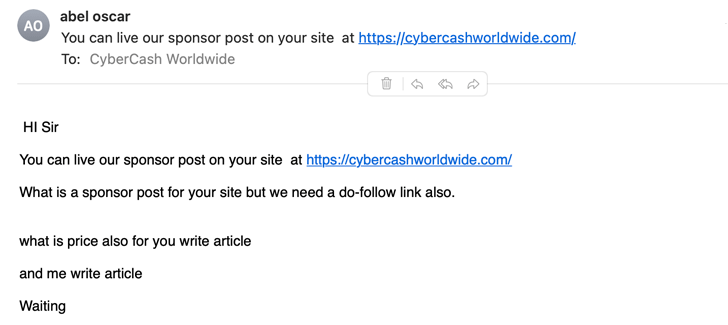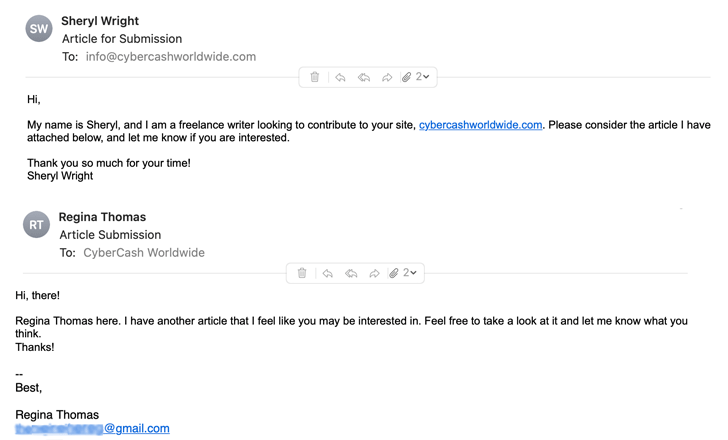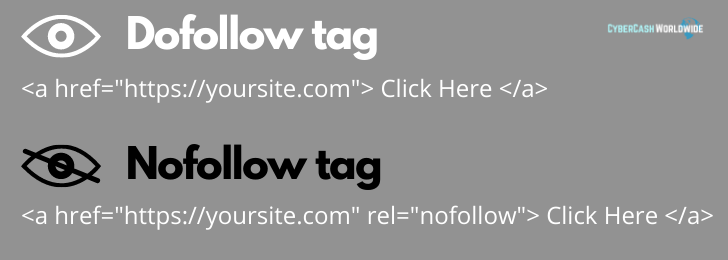A backlink building is still considered to be one of the effective SEO strategies by many. It evidently works as long as a link comes from a site with a certain DA (domain authority) level. But it's also one of the "darkest gray hat" SEO strategies and the results are not proportional to the level of effort that you put in. You're effectively trying to fool Google, which you can't, it's something I wouldn't spend my time for.
Over the past few years, I have witnessed countless new business owners pay agencies to get some links back to their site. And I can tell you some are losing money to fake agencies without knowing it - I can tell you from my own experience "from the other side". So today, I'll explain to you how some of the instant backlink agencies make money off you but don't provide the service as they initially promise.

What Is A Backlink Building Strategy?
You wouldn't be reading this if you didn't know about this...but just in case, here's a typical scenario.
You created a new website with a new domain name (e.g. yournewsite.com) just a few months ago. You've been publishing blog posts every 2-3 days but struggle to get them to rank on Google search. That's because your domain authority (DA) level is still low - it means Google doesn't trust your site just yet. You only started it recently, you might give it all up and decide to delete the site tomorrow, who knows? Because of that, no matter how good the quality of your well-optimized, keyword-rich posts may be, it's very hard for your new site to outrank the competitor sites.
A backlink is when another website links back to your site, and when that website has a better DA level, it can help your site creep up in search engine rankings. Because Google trusts that site, and that site refers to your site - in other words, someone who's trusted by Google recommends your site, so Google will think your site must also be trustworthy.
For that reason, the backlink must come from a site that has a higher DA than yours. It won't work if it's from a site with fewer visitors, a spammy site such as a traffic exchange, or another site that you own.
But who should you ask to link back to your site? You don't know anybody personally who owns a site with a higher DA.
One way is to google to find influencers - or other website owners who are in the same niche, email them and request to link back to your site. "Hi, I find your article xxx (the name of their blog post) really interesting... By the way, I've written a similar article titled xxx which I believe your readers may find interesting. Is it possible for you to link back to my page?"
However, many online marketers are trying to give this method a shot, sending unsolicited messages to random website owners. It may have worked until some years ago but nowadays it can simply annoy them or be treated as spam by them. In fact, we do receive this kind of messages daily, and we just cannot accept any of them because of the sheer volume of the requests. Unless we feel their article is jaw-droppingly useful to our readers, which is extremely rare.
Sponsored Post Method
So another way to get a backlink is via a sponsored post. You pay an outreach agency a fee, they'll prepare a blog post that contains a link back to your webpage and have it published on a website for you. Here's what happens;
- You pay a backlink service agency a fee and tell them which of your page you want it backlinked.
- The agency hires a writer and asks them to write a 700-800 word blog article. The article must be relevant to your site niche, and must also contain a link back to your site.
- The agency finds a website of a decent DA level and asks the webmaster to publish the prepared blog article for a fee (this is called a "sponsored post").
What Do You Advocate?
Sponsored Post Business
It means that those backlinking agencies run a "sponsored post" business that works in logistics. For example;
- You pay an agency $120.
- A writer receives $20 from the agency for writing an article for them.
- A website owner receives $50 from the agency for publishing the article on their site.
- The agency makes a profit of $50 ($120 - $20 - $50).
NB: The prices are just an example.
Fake Agents and "Freelance Writers"
If you use a legitimate backlink service agent, I assume that they'll work hard to find the right websites and good writers, and at least make sure that you'll receive a fairly quality backlink. Though I don't know if that will improve your page ranking position, that's another story.
Now, what you should be careful of and should avoid at all costs are unknown agents who don't even have their own website. You see, the agent's job itself is essentially being a middleman, very straightforward with no negotiation to make other than over the prices. I've seen many individuals take advantage of the fact and pretend as an agent with a hidden identity, with barely any knowledge of SEO or article-writing skills. We have received countless messages from fake agents and people who claim to be a "freelance writer". Here are a couple of examples;
Fake Backlink Agent Scammers

They email us asking to publish a sponsored post for a very low price, around $3-5. Their English is so broken, their names are all so fake (always a common English name is used so that it won't come up on Google search but the first name and last name transposed, e.g. Smith John, Brown Emily), the dollar sign placed after the number (5$), and they're all from Gmail.
Fake "Freelance Writers"

They're also from a Gmail address and often send an image of themselves that turns out to be a royalty-free stock photo. Again, they call themselves a very generic name so that nobody can search to find out they don't exist.
They ghost-write articles themselves instead of hiring a writer - charge customers for the promise of backlinking and pay website owners a lesser amount for publishing their article that contains a link their customer's site. The difference is their profit.
Bad Articles
There's no way we (site owners) can publish any articles that we receive from a fake agent or fake writers for two reasons. One is because they could easily have the same article published elsewhere, multiple times, which would create duplicate content, and our site could risk being penalized by search engines.
And the other reason is the articles themselves - the quality is so bad. Typical problems are;
- An article is almost always a general guide that doesn't help anyone. Obviously copied from another site and each and every sentence is paraphrased. The sentences may be "authentic" enough to bypass Copyscape but as a context, nothing's unique or useful.
- These agents hire writers so cheaply, typically via Fiverr but they get what they pay for. The cheap writers write up absolute rubbish 800-word content overnight for $5-$10 (e.g. stretch each paragraph using repeated expressions, keep humming and hawing before getting to the point.)
Your Backlink May Be "Nofollow"
Another reason that I strongly recommend you NOT to use an unknown backlink service is that the link to your site may turn out to be "nofollow". We have been approached by some "freelance writers", asking us to publish their article for free, but also saying the outgoing link in the article to a non-authority site (presumably their customer's site) could be nofollow.
In case you don't know what a "nofollow link" means, the Alexa Blog explains it. Basically, there's a "dofollow" link and a "nofollow" link. When someone places a hyperlink on their web page to your page, it'll be tagged as a "dofollow" by default, which means that Google and other search engines recognize that the website is linking back to your page. That's the whole point of backlinking. But if they tag a link "nofollow", it won't be counted as a backlink.

So this is how those "freelance writers", a.k.a. fake backlink service agents scam new website owners like you;
- They email you to say that your search engine ranking position is appalling. They can help you improve it by offering a "quality backlink" for a very low fee. Their email address is Gmail and they don't show you anything to validate their identity, e.g. a website or social profile.
- Because they charge you a low fee, they don't have a budget to pay a publishing website (like us).
- Publishing website owners are usually reluctant to publish such a guest post with a link to a non-authority site (your site) that they've never heard of.
- For reasons 2 & 3 above, they request the website owners to publish their article for free (sometimes they offer to pay a small fee) but tell them that the outgoing link can be nofollow.
What they don't tell you (the paying customers, new website owners) is that the backlink you'll be receiving is nofollow, which is effectively, not a backlink. If you don't know about dofollow/nofollow and don't know how to check it, you'll be totally wasting your money.
5 Steps To Avoid Backlink Service Scams
Although paying for a backlink is not something I would do in the first place, it's just my personal opinion. We do often find spammy sites with no content strangely ranked high in SERP, it turns out to be a result of furious backlinking strategies, then you may think it's worth investing some money on backlinking services. If you do decide to buy a backlink, here are the things you should do to avoid being scammed;
#1 Make sure the service provider has a website
If someone contacts you by email or via a direct message on social media and offers to get you a backlink, the first thing you should do is to check their website. If they say they don't have it (or they have it but it's currently down, etc.) don't believe a word of what they say! No website = no business. Fake identity = deserved to be called a scammer.
#2 Make sure the link will be a "permanent dofollow"
Never forget to ask if the backlink will be "dofollow" - if you don't get a straightforward "yes", then forget that provider. Also ask them to confirm that the link will be placed permanently. They'll say "yes" to this question for sure. Then ask "how many years the link will be guaranteed for". There's no right answer to this, but you can determine how helpful & knowledgeable the provider is from the way they explain to you.
#3 Ask them the exact linking source
Ask the provider which exact website is going to link back to you. They're unlikely to answer that question at the time of ordering a backlink. But you can be persistent and tell them you need to know it, as you need to know what exactly you're paying for.
If they're unable to tell you which website, then step #4 below.
#4 Shop around!
If the provider cannot answer your question above, they can at least tell you the domain authority range of the website, which can be measured by Moz's domain analysis checker (https://moz.com/domain-analysis). The higher the number, the better, and it should at least be higher than 20.
Then you can shop around - for example, if the provider tells you that the linking website will be DA30, then google search to check how much other backlink service providers charge.
#5 Monitor Your Backlink
Make sure you pay using a credit card or via PayPal, so if anything happens (e.g. your link is removed after a while), you can claim your money back. After the backlink is published,
- Make sure the link is not tagged "nofollow" (right-click the webpage > "Inspect" or "Inspect Element" in the menu.)
- Keep monitoring periodically to make sure the link is still there.
If you ever buy a backlink through a website post, I hope the above 5 steps will help you avoid being scammed and pay the fair value.
How I "Finally" Make Over $7,000 Monthly Income
"The most valuable thing I've ever done!"


I lost so much money becuase I paid backlink service but it was scam. They gave me one backlink
but after a while the website vanished. I contacted the person who promised backlink service but
she also vanished, I think. Because she told me to pay by payoneer I could not get my money back.
I complained but it don’t work.
Hi Ray, this is an informative post, revealing a lot of secrets behind the guest postings mechanism. I always wondered why there were so many ‘general guides’ that all similar to one another but didn’t give any useful information and now it makes sense to me that they are part of that business. It might be a ‘win’win’ for them but will only overcrowd the web space with the number of blog posts making no one else happy. You also say they don’t have any SEO knowledge. And I don’t think their useless posts will ever be indexed by Google, I agree with you that backlink service is a pointless business. Thank you for your article, it’s eye opening to me.
Hi Clair, thanks for your comment. You're absolutely right, it's great that everyone has opportunities to write in however they want. I guess it's all up to the website owner's decision to publish it or not. Thanks for sharing your thoughts.